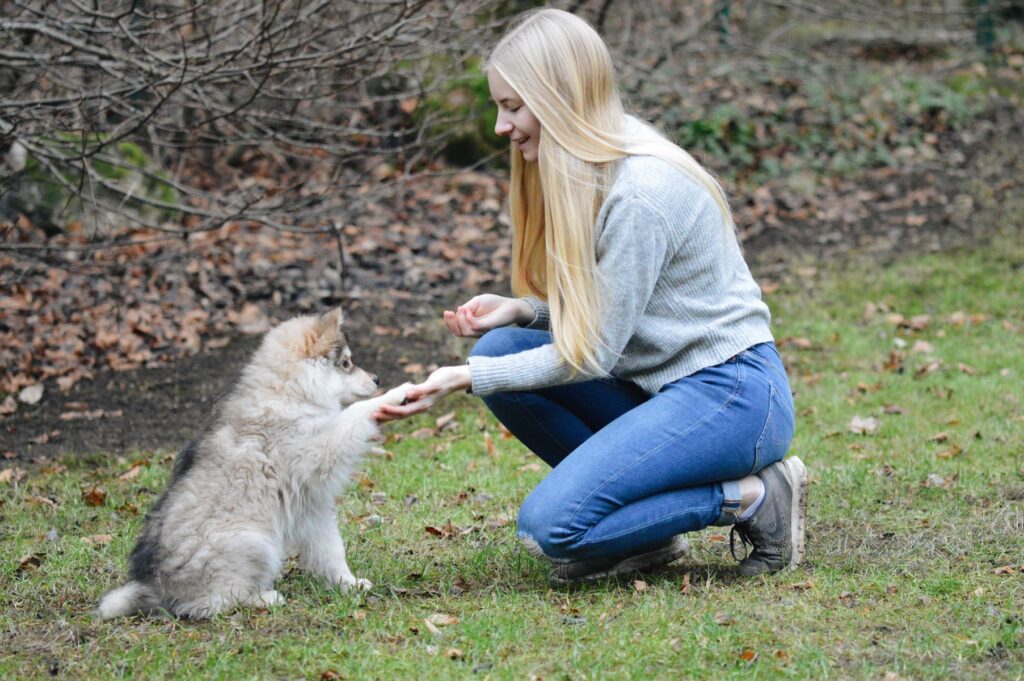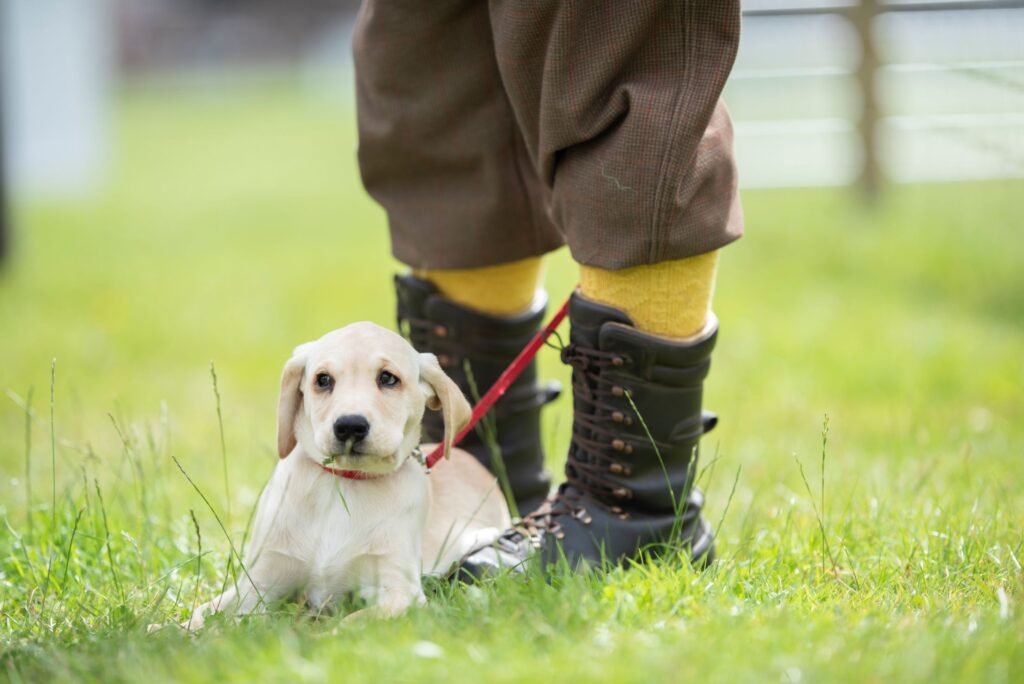Bringing a new puppy into your home is an exciting experience, but it also comes with its challenges, especially when it comes to training. Proper training is essential to ensure your puppy grows up to be a well-behaved and happy dog. Here are the top five puppy training tips that will set you and your furry friend up for success.
1. Start with Basic Commands

Why Basic Commands are Important
Teaching your puppy basic commands such as “sit,” “stay,” “come,” and “down” lays the foundation for more advanced training. These commands help establish you as the leader and improve communication between you and your puppy.
How to Teach Basic Commands
- Sit: Hold a treat close to your puppy’s nose, move your hand up, allowing their head to follow the treat, causing their bottom to lower. Once they’re in a sitting position, say “sit,” give them the treat, and offer praise.
- Stay: Ask your puppy to sit. Open your palm in front of you and say “stay.” Take a few steps back. If they stay, reward them with a treat and praise. Gradually increase the distance.
- Come: Put a leash on your puppy and gently pull it while saying “come.” When they move towards you, reward them with a treat and praise.
2. Use Positive Reinforcement
The Power of Positive Reinforcement
Positive reinforcement involves rewarding your puppy for good behaviour, which encourages them to repeat that behaviour. This method is proven to be more effective and humane compared to punishment-based training.
Effective Rewards
- Treats: Use small, tasty treats that your puppy loves.
- Praise: Verbal praise such as “good boy/girl” in a happy tone.
- Play: A quick game with their favourite toy can be a great reward.
Remember to reward your puppy immediately after they perform the desired behaviour so they can make the connection.

3. Be Consistent
Importance of Consistency
Consistency is key in puppy training. Dogs thrive on routine and predictability. Consistent commands, rewards, and schedules help your puppy understand what is expected of them.
How to Maintain Consistency
- Use the Same Commands: Ensure everyone in your household uses the same commands and gestures for each behaviour.
- Set a Routine: Feed, walk, and train your puppy at the same times each day.
- Enforce Rules: If you don’t want your puppy on the furniture, never allow them up, and ensure everyone in the house follows this rule.
4. Socialise Your Puppy
Benefits of Socialisation
Proper socialisation helps your puppy become a well-adjusted dog. It reduces the likelihood of fear-based behaviours and aggression. Early exposure to different people, environments, and other animals is crucial. your puppy should have their vaccination schedule completed before they venture into public spaces.
How to Socialise Your Puppy
- Puppy Classes: Enrol your puppy in a reputable puppy training class where they can interact with other puppies and people.
- Walks and Outings: Take your puppy on walks in different environments, such as parks, busy streets, and quiet neighbourhoods.
- Playdates: Arrange playdates with other friendly, vaccinated dogs.
5. Patience and Persistence
Why Patience is Essential
Training a puppy takes time and effort. Puppies have short attention spans and are bound to make mistakes. Patience and persistence are essential for long-term success.
Tips for Staying Patient
- Short Training Sessions: Keep training sessions short (5-10 minutes) to match your puppy’s attention span.
- Focus on Progress: Celebrate small victories and improvements, rather than expecting perfection.
- Stay Calm: Avoid getting frustrated or angry. Take a break if you’re feeling overwhelmed and try again later.
Training your puppy is a rewarding experience that builds a strong bond between you and your furry friend. By starting with basic commands, using positive reinforcement, maintaining consistency, socialising your puppy, and practicing patience, you’ll set your puppy up for a lifetime of good behaviour and happiness. Remember, every puppy is unique, and some may take longer to train than others. Stay committed, and enjoy the journey of raising a well-behaved dog.
